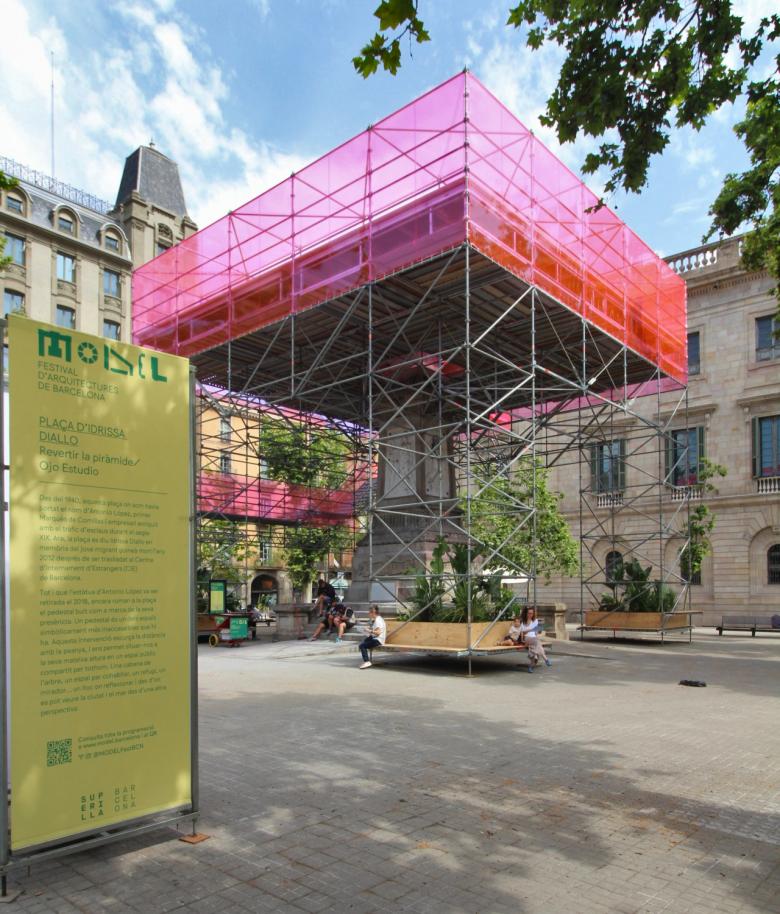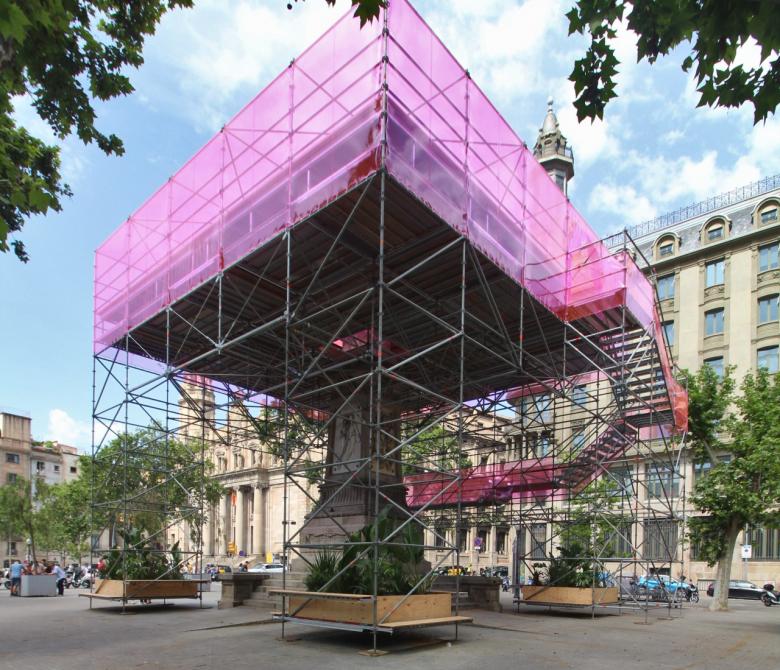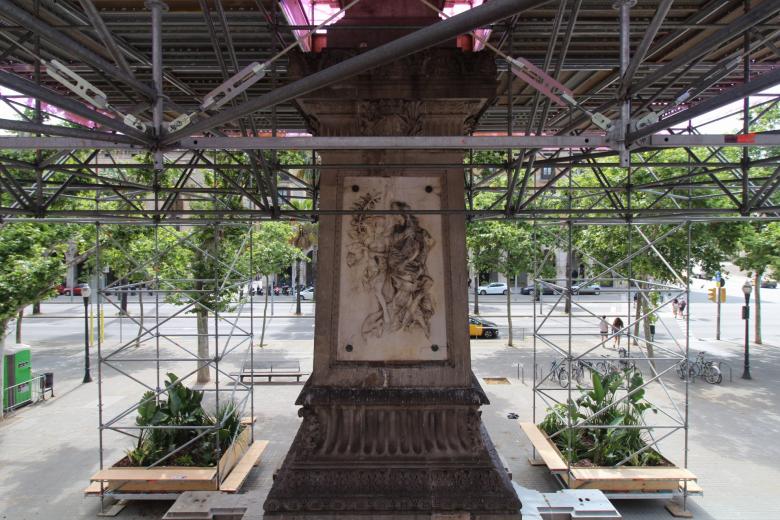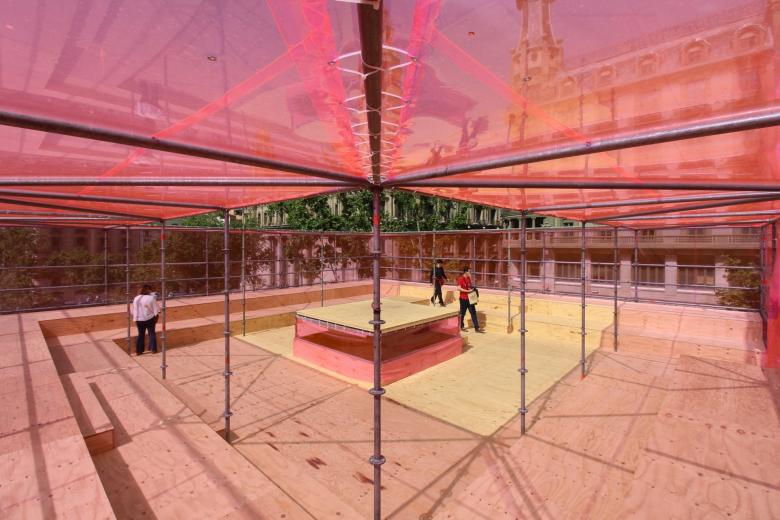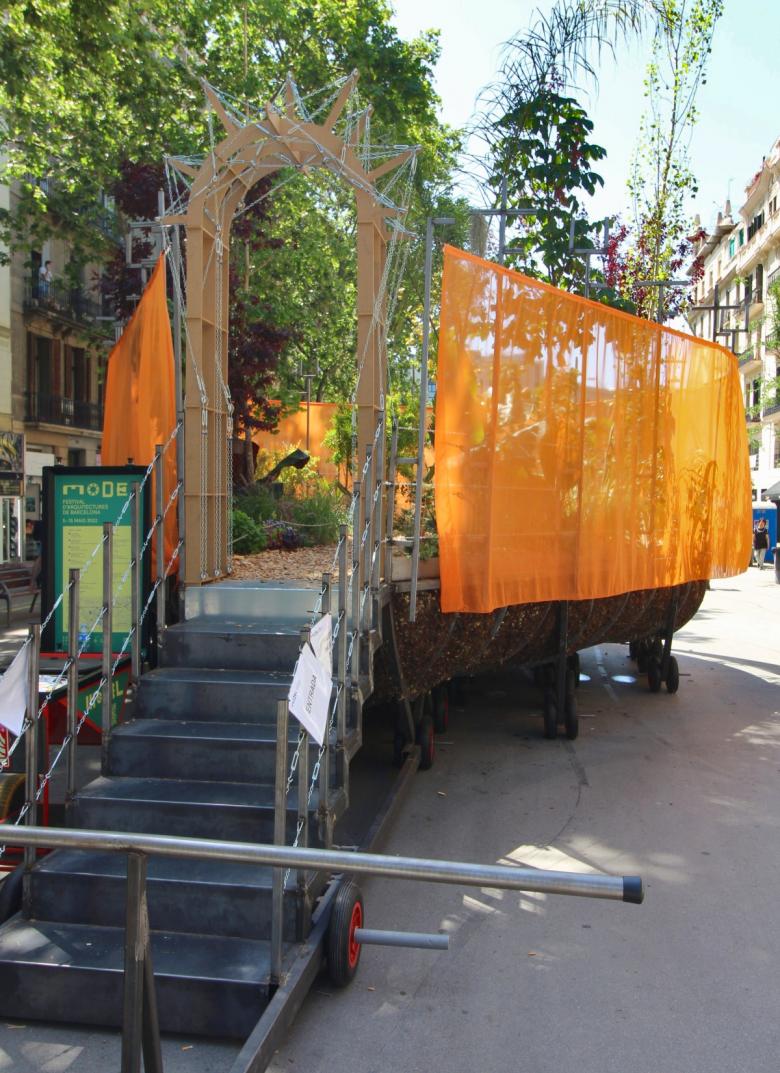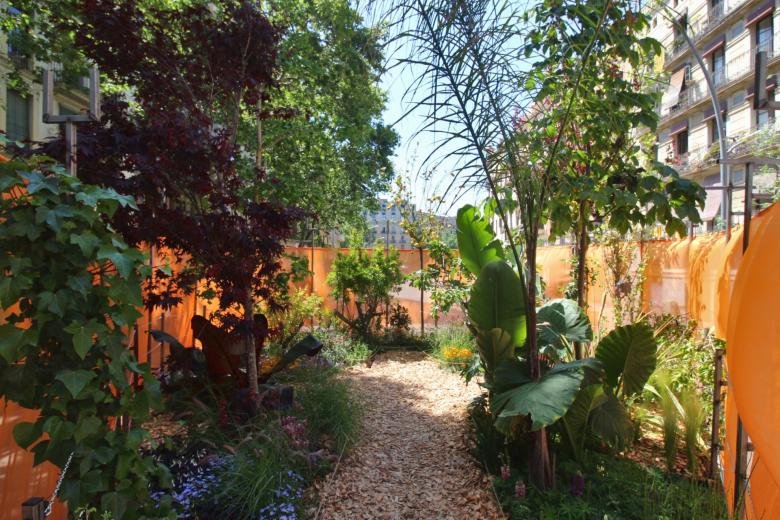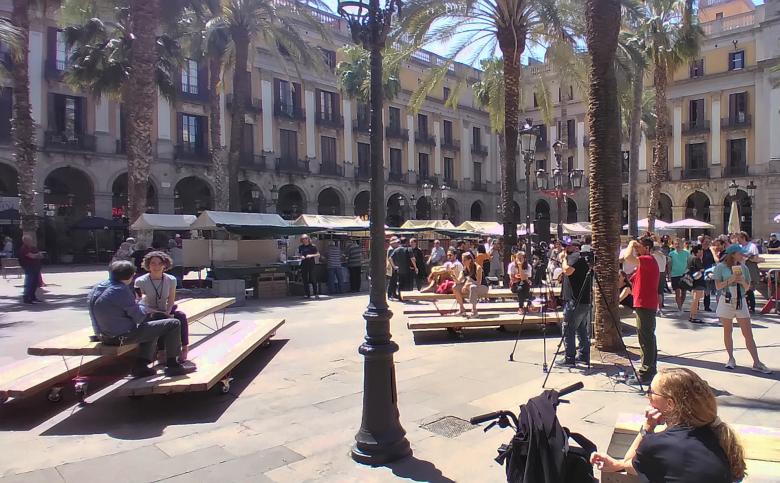Barcelona, a 'Model' City
The inaugural edition of Model. Barcelona Architectures Festival, an initiative of the Barcelona City Council and the Catalan Architects’ Association (COAC), took place from May 5 to 15 at a handful of venues across the city.
The impetus for Model. Barcelona Architectures Festival was Barcelona’s designation last year as host city for the World Congress of the International Union of Architects (UIA) and as the UIA-UNESCO World Capital of Architecture in 2026. The website for Model describes the designation as "an invitation to ask ourselves what it means to be a capital in a diverse, global society, and at a time when the city model needs to be re-defined, re-designed and revised on every scale to provide a response to the numerous systemic crises of our times."
The task of curating the first edition of Model fell to curator Eva Franch i Gilabert, formerly of the Architectural Association and Storefront for Art and Architecture, architect Beth Galí i Camprubí, and cultural researcher José Luis de Vicente. They devised an approach where questions about the future of Barcelona and other cities would take place in public spaces through installations, exhibitions, performances, discussions, and other events.
The curators developed five themes that coincided (though not strictly) with five public spaces across Barcelona: Between Generations at Plaça Reial; Between Cultures at Plaça Catalunya; Between Species at Llosa de Sant Antoni; Between Materials at Passeig de Lluís Companys; and Between Classes at Plaça d’Idrissa Diallo. Events across these various public spaces explored the five themes that collectively serve as an opportunity to imagine models for future urban scenarios that are innovative, sustainable, fair, and equal.
One highlight of the festival was Reversing the Pyramid, an installation by Ojo Estudio (Oihana García and Jordi Rodríguez) at Plaça d’Idrissa Diallo. Until last year, the plaza was called Plaça d’Antonio López; it was renamed for Guinea's Idrissa Diallo, who climbed over a border fence into Spain in 2021, was detained at a foreigner internment center, and died while in custody (his death led to changes at the internment centers). The installation confronted Barcelona's colonial past by building over the pedestal of the statue of Antonio López (removed in 2018), first Marquis of Comillas, a 19th-century merchant and slaveholder, and thereby "inverting the concept of the pyramid." Visitors climbing the steps to the top of the installation saw, not a historical figure, but an elevated forum to interact with others, a place to get a rose-colored look at the sea and city, and a place to rest.
Another highlight was the mobile installation "Arca de Convivència" by LEA Atelier and TAKK Architecture. The elevated surface planted with a variety of species from different climatic zones moved up and down Llosa de Sant Antoni over the course of the festival for tastings, courses, and workshops, while ultimately acting as "a reminder of the urgent need to create public spaces that will help to reverse the effects of global warming, and stimulate biodiversity."
And in Plaça Reial, scene of Model's closing-day debate, Model Books "present[ed] a selection of international books about architecture, philosophy and critical thinking that encourage[d] readers to reflect on the main theme of this first edition of Model. Barcelona Architectures Festival: growing back." Curated by dpr-barcelona, Model Books allowed anyone -- Model visitors or otherwise -- to read one of the selected books while enjoying the Plaça Reial setting.
Then on Sunday, May 15, Plaça Reial hosted PARADIGMS, the "Final act of the Festival" and "a marathon of debates and conversations about present and future challenges in the city." The three-hour-long event occupied the center of the plaza, with the noises of the cafes serving as a backdrop and the weekly stamp and coin market adding even more diversity to this famous public space. Among other things, the closing event amplified the approach of Eva Franch i Gilabert and the other curators to bring the festival into direct contact with the public, breaking down the exclusivity of typical architecture events. The installations and events hold promise for the future editions of Model, as Barcelona's moment as World Capital of Architecture in 2026 approaches.
